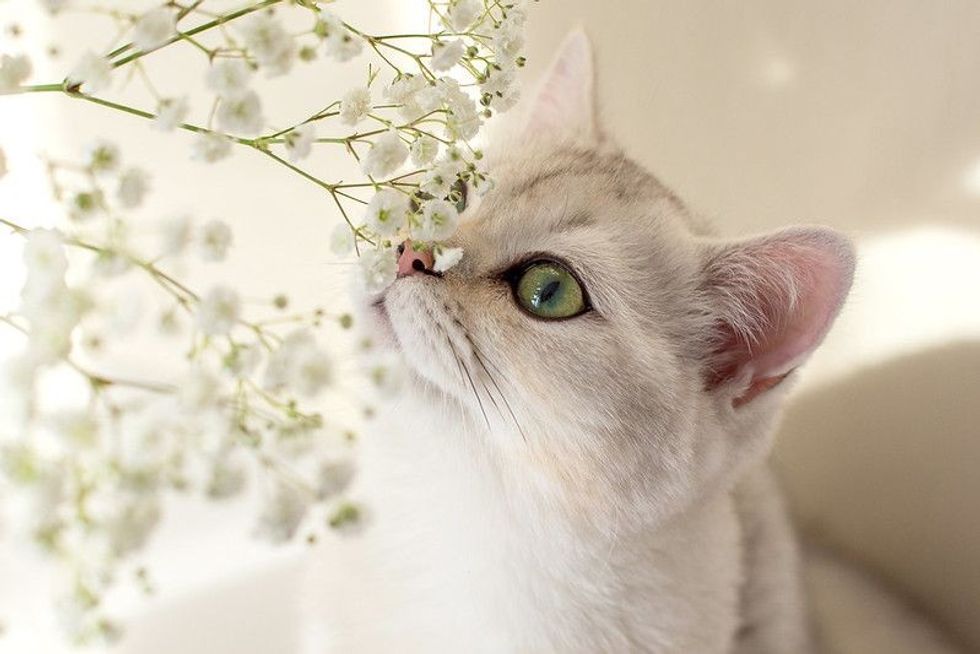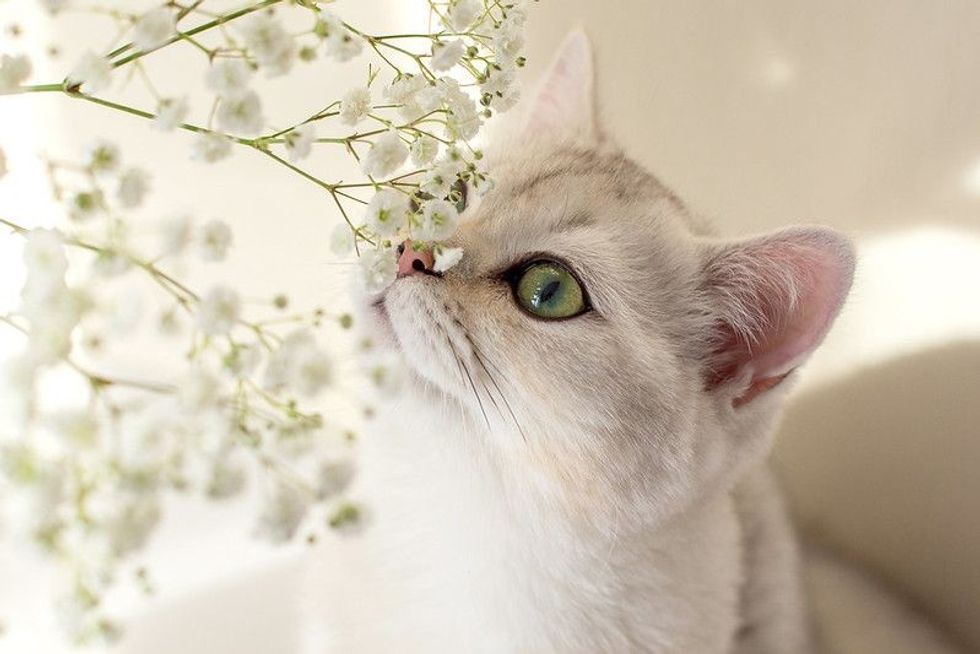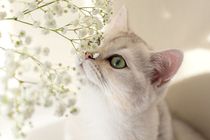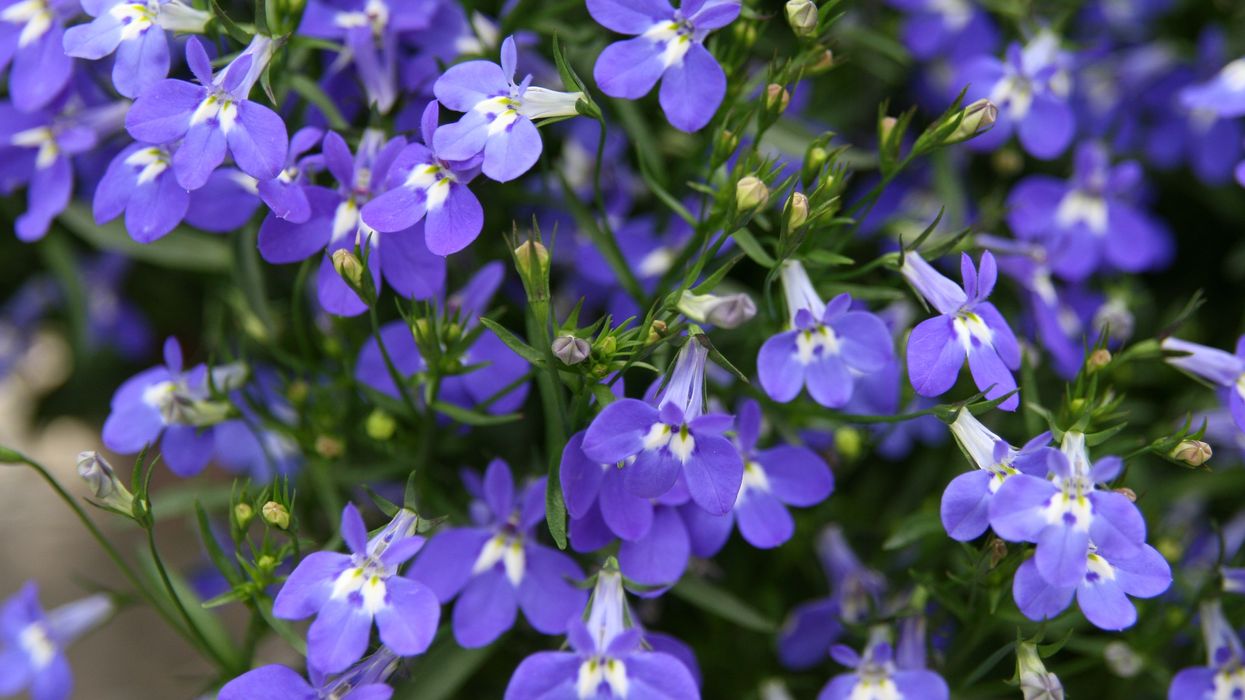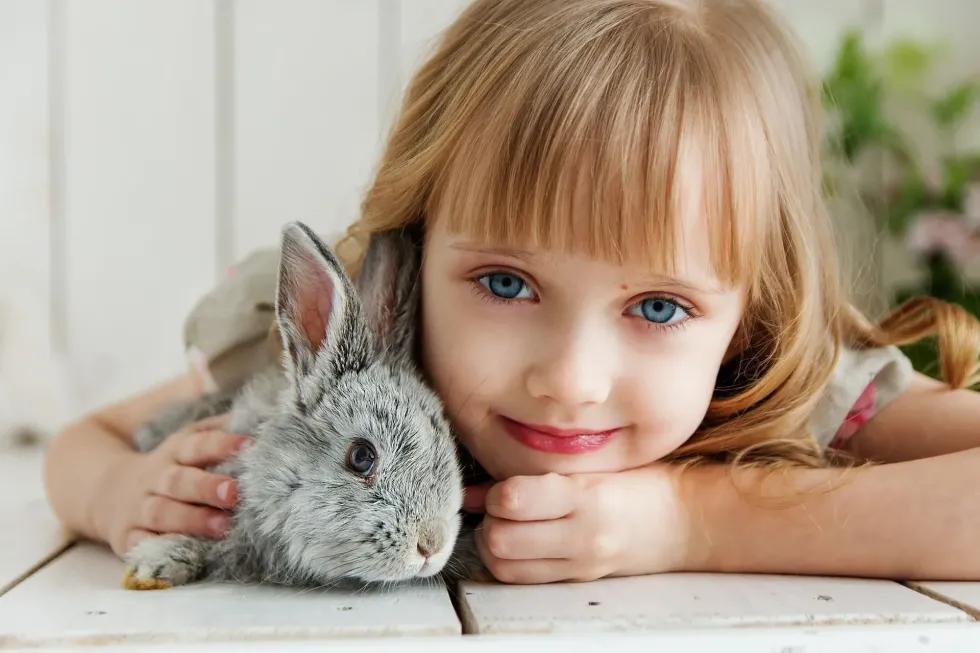Flowers For Felines: What Flowers Are Safe For Cats?

If you love cats, you must know that some cats absolutely adore flowers!
Cats are known to be curious animals and are often attracted to cute tiny flowers, flower beds, or grass. These flower-friendly creatures love flowers because of their unique tastes or texture!
Having cats can be a very rewarding and loving experience. Especially when they have a garden to play with, they can be seen enjoying nature.
They often find prey by roaming around and love to cuddle in between flowers, grass, and leaves. As cat owners, we love to keep them entertained and see our furry friends playing around. Feline animals have an especially strong sense of smell, which is said to be 14-20 times stronger than the smell receptors of a human being.
Even though cats love flowers and plants, it is important to note that not all plants and flowers are safe for these furry friends. Some flowers can be toxic to cats and can lead to damages.
Since cats crave different textures and tastes in their mouth, they often nip any flowers they find attractive or smell nice.
They do not have the ability to differentiate between harmful and benign flowers.
Each cat is unique, and hence we should always keep a check on what they are up to and the way in which we can keep them out of danger. To understand our feline friend, let's take a look at flowers that are safe for them to play with and flowers they should stay away from.
Pets are family to us, and we always want to keep them happy and safe. To know more about how to take the best care of your cats and keep them safe, you might like to read our are geraniums poisonous to cats? And are carnations toxic to cats?
Are indoor flowers safe for cats?
Unlike dogs, cats are very lax animals. They love to survey their surroundings and find amusements in a variety of things.
Due to their strong smell receptors, it is difficult to keep anything hidden from them. And if you have flowers at home, they will undoubtedly wander around them due to their smell and colorful nature! Some varieties of flowers, such as daisies, snapdragons, sunflowers, freesias, are entirely safe for cats.
While some others like Aloe, lilies can be harmful and poisonous to dogs or cats. Hence we should know which flowers are safe and non-toxic to the cat.
There are various flowers we like to bring home for their wonderful smell or as décor. Some of the most common indoor plants and flowers are begonia, African violet, orchids, tulips, chrysanthemums, peace lilies, hydrangeas.
But it is essential to remember which indoor plants are cat friendly and which can be toxic. However, lilies, chrysanthemums, Aloe tend to be problematic to cats if they are ingested. These flowers can cause tummy troubles in cats.
ASPCA, an animal poison control center, has said that eating such toxic flowers can also lead to kidney or liver damage symptoms. So it is just much better to keep blooms out of the way as much as possible for your pet!
Like humans, dogs and cats have their own personal allergies too! Hence even though some flowers are not poisonous or toxic to them, allergies can cause them mild irritation and other health issues as well.
Therefore, we must take care of what we keep in the vicinity of these pets. That said, one of the most common flower plants, which has also derived its name from cats, is catnip!
It is a wonderful option to keep at home. You can even grow a patch of catnip, and our furry friends can lay down and roll around in them. The essential oils in flowers can also keep the cats happy, and their sweet fragrance is also good to have at home.
The next most common flowers are roses and rose bouquets! Experts have said that roses are not associated with cat poisoning.
The worst possible outcome of them nibbling on rose bouquets is mild vomiting or diarrhea. Hence if possible, it would be best to keep the bouquet away.
African Violet and orchids are completely safe and non-toxic to dogs and cats as well. They also make beautiful indoor plants due to their color! So these flowers can be kept indoors without any worry for your pet/pets.
Are outdoor plants and flowers safe for cats?
Like dogs, cats love to wander in nature and find things to play with that can amuse them for a while before they move on to another thing to keep them busy for a while.
Since this little family member loves to be around flowers and often prefers to nibble on them, we should be aware of the outdoor plants and flowers that are safe for them to be around and others that can turn out to be toxic plants.
Some of the common garden flowers and plants that are said to be safe by the ASPCA animal poison control center are sunflowers (including seeds), African Violets, snapdragon, bamboos, rose. Cats also nibble on the grass to help them bring up hairballs.
Other herbs and seeds plant that is also cat friendly include rosemary, basil, dill, mint. These plants, if eaten by your cat, can also turn out to be beneficial for them. So if you want to make cute cat-friendly flower garden plants, be sure to include those!
Now that we know which flowers and plants are cats and dogs friendly and non-toxic, let us take a look at some toxic flowers and toxic plants. Mistletoe and holly plants are very poisonous to cats and should be avoided entirely.
Other toxic flowers include peonies, foxgloves, lilies, marigolds. Sometimes cat species might instinctually stay away from these plants, but if they are ingested, they can start showing symptoms of kidney failure, vomiting, upset stomach.
Cats are very sensitive to environmental changes, and this can lead to them sniffing out various things. This curious creature can hence wander around and find different flowers and unique smells in nature.
Some aggressive cat species can purposely go around seeking different kinds of fragrances. You might have seen their carefree nature when they stay hidden in flower vases or sniffing and chewing on different flowers.
So it is essential to keep a watch on them as their caretakers, so they do not have any harmful side effects, and even if they do, we can be aware of the steps we should take to avoid any further injuries.
Some side effects caused by eating toxic plants are vomiting, indigestion, diarrhea. At an extreme, it can also lead to the cat being in a coma or death.
Hence if you ever have a doubt, it is in your best decision to call a vet, as they are the best judge. They can also give the correct treatment if any exposure to toxic plants is found.
What are some colorful flowers that are safe for cats?
We enjoy decorating our homes with colorful flowers. It makes the house look welcoming and smell fresh. Some of these refreshing flowers include orchids, rose, peony.
But when we have pet/pets like cats and dogs, we have to beware of flowers that can be dangerous to our pet dog or cat. But worry not! We will tell you how to keep your cats and dogs safe while keeping your home colorful and fresh!
There are multiple plants that are not toxic to cat species. Some of these include our beloved rose.
Roses come in various colors like red, yellow, orange, or even multicolored and beautiful. Luckily cat species are safe from this non-toxic and aromatic flower. Another great colorful flower is snapdragon blooms.
They come in a wide variety of colors and are very fragrant. Having them around your house is a bonus as this colorful bouquet of flowers looks gorgeous and leaves your house smelling like a fresh garden! They are not dangerous to your feline or your dog.
These friendly flower blooms come in various colors and attractive shades such as pastel pink, yellow, peach, purple, and also bright colors like red or bicolor! So having these flowers can help you relax back and let your cat or dog play with them if they desire.
Some other non-toxic friendly flowers which can be found outdoors include wax flower, which is a lovely shade of purple. Statice flowers or Sea lavenders are also friendly flowers that cats can be safe around.
There are also some air-purifying plant varieties that are safe for your cat that can be kept as a houseplant or outside your house. Bamboos, lemon palm, and old man cactus are some such varieties. They also purify the air and are safe for your cat and dog to enjoy!
Even though there are various plants that are considered safe for a cat or a dog, it is recommended to keep any type of flower or plant, or vase away from these curious creatures for their safety. There are other things that can harm them.
For example, cats love to drink water from vases, and if they tilt some heavy vase in hopes of water or just playing they can hurt themselves.
Another thing that might be of harm to them is the powder that is sprayed on many flowers to keep them fresh. This chemical can irritate and harm your pet/pets.
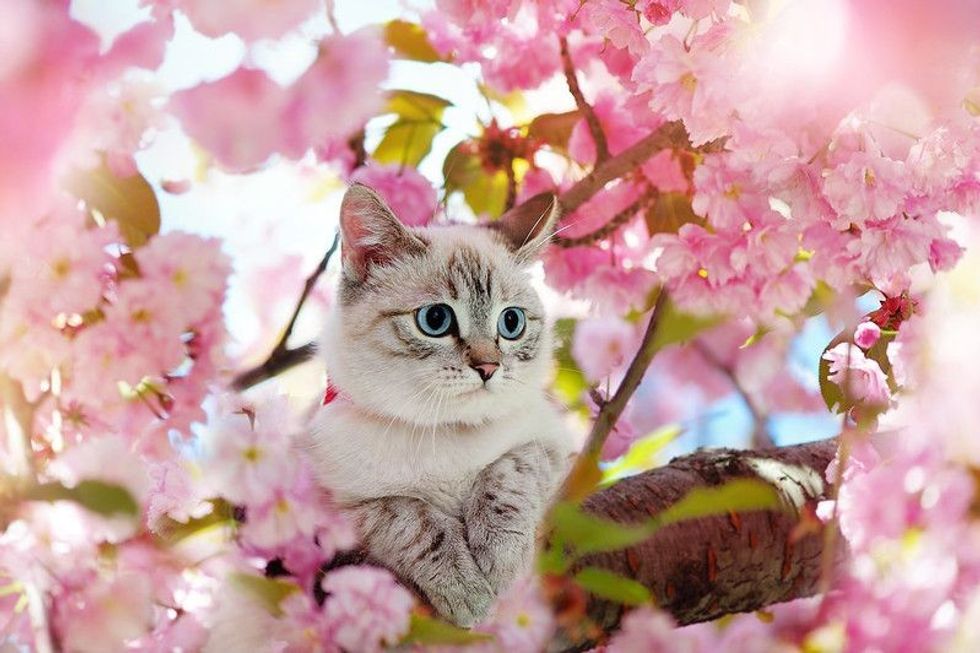
Which perennial flowers are safe for cats?
Perennials or perennial plants are plants that are able to live for more than two years. We all love plants, and being around them makes us feel fresh.
Hence it is obvious that we also prefer to plant flowers that bloom for more extended periods of time.
Some of the common plant names you might be knowing are lemon balm, peppermint, curly kale, purple coneflower, hollyhock, cactus, sunflowers, daffodils. Even though we love to plant them in cute arrangements, you might be wondering which perennial flowers are safe for your pet.
The common perennial palm plant types that are like a friend to your pet are lemon palm, areca palm, etc. They look pretty, live long, and also are safe for your pet. Another safe perennial plant is African violets.
They are very fragrant, colorful, and safe for your pet. Another famous perennial plant that cats absolutely adore is catnip! Catnips are herbaceous perennials, and cats love to lay in them and enjoy lazily.
For the safety of your pet friend, you must also be able to identify which perennial plant would turn out to be toxic to cats or dog. One of the most commonly used flower lilies is actually thought to be cat-friendly.
You may be astonished to know that the majority of the lilies are extremely toxic. True lilies like Day lily, Tiger lily are some of the most toxic lilies.
They are harmful to our pets, and we should keep them away from the lily plant. If eaten, they can even cause death in some cases!
If you think your pet is in danger, you should not hesitate to call the vet! Perennial flowers that are not friendly flowers are daffodils, tulips, etc.
These plants are some of the most common varieties of plants found in the garden and around your homes. Hence you might not perceive them as an immediate danger.
Therefore it is important to be well informed of the signs and symptoms that can be seen in your pets like cats/dogs. By being knowledgeable about your surroundings, you will be able to make appropriate decisions regarding the health of your pet.
What can you do about exposure to non-cat-friendly flowers?
As cute and loving pets are, your cats and dogs should be watched over when they are roaming around and playing in the garden or nibbling on a houseplant. They become a part of our family.
We, as humans, don't give a second thought to beautiful flowers, which induce fresh smells and look colorful and attractive.
But when we have a pet, we should be aware of what we are introducing them. So if accidentally we encounter any plant that our pet friend has ingested and making the pet feel uncomfortable, we should know the right actions and arrangements to make them feel healthy again.
When your pet is exposed to a toxic plant such as Madagascar periwinkle or particular varieties of lily, they can cause severe symptoms that should not be overlooked! Signs and symptoms that your pet might have ingested a non-cat-friendly flower or plant are that they have an upset stomach.
They can experience diarrhea, kidney failure, and liver failure, and vomiting.
If ingested in large quantities, they can even cause death in some cases. Toxicity from plants is a common occurrence in pets which are not looked at properly.
Though most of the time, toxicity from flowers will only result in mild symptoms which might go away after some time is crucial to call a vet or animal poison control center!
If you enjoy having flowers around and going to gardens with your pet, make sure you are able to cat-proof the area to keep them safe and sound.
On extreme occasions, the treatments needed to save our pets can get really costly. In any circumstance, it is always better to be careful than sorry!
Other things you can do to keep your pets safe are making sure any flowers are kept away from the reach of cats. If you want to keep varieties of plants at home, make sure they are pet-friendly and not toxic.
Pollen that might drift away from flowers should also be taken into consideration. Also, make sure that your cats don't drink water from flower pots.
And if they do, take them for a check-up to the doctor. Vases can also fall on your pets while playing and might even break into pieces that can harm your pet.
Another thing that you should be aware of is not to have many thorny plants at home. Though most of the time, cats themselves will try to stay away from them, it is better not to have them around.
Here at Kidadl, we have carefully created lots of interesting family-friendly facts for everyone to enjoy! If you liked our suggestions for what flowers are safe for cats? Then why not take a look at are cats supposed to eat catnip? Or Australian Mist cat facts!
We Want Your Photos!
More for You
Master of Business Administration

Deepthi ReddyMaster of Business Administration
With an MBA under her belt, Deepthi has discovered her true calling in content writing. Her writing repertoire is diverse, covering travel, movies, pet care, parenting, animals and birds, and more. Her joy of learning and creating has helped her craft well-written and engaging articles. When she isn't writing, Deepthi enjoys exploring new cultures, trying different foods, and spending quality time with her two children aged 7 and 12.
Bachelor of Arts specializing in Economics

Gowri RaoBachelor of Arts specializing in Economics
With a bachelor's degree in Economics from Krea University, Gowri is a highly skilled data analyst and an expert in regression and causation modeling. Her interests in economic trends, finance, and investment research complement her professional expertise. In addition to her professional pursuits, Gowri enjoys swimming, running, and playing the drums, and she is also a talented tutor.
Disclaimer
1) Kidadl is independent and to make our service free to you the reader we are supported by advertising. We hope you love our recommendations for products and services! What we suggest is selected independently by the Kidadl team. If you purchase using the Buy Now button we may earn a small commission. This does not influence our choices. Prices are correct and items are available at the time the article was published but we cannot guarantee that on the time of reading. Please note that Kidadl is a participant in the Amazon Services LLC Associates Program, an affiliate advertising program designed to provide a means for sites to earn advertising fees by advertising and linking to Amazon. We also link to other websites, but are not responsible for their content.
2) At Kidadl, we strive to recommend the very best activities and events. We will always aim to give you accurate information at the date of publication - however, information does change, so it’s important you do your own research, double-check and make the decision that is right for your family. We recognise that not all activities and ideas are appropriate for all children and families or in all circumstances. Our recommended activities are based on age but these are a guide. We recommend that these ideas are used as inspiration, that ideas are undertaken with appropriate adult supervision, and that each adult uses their own discretion and knowledge of their children to consider the safety and suitability. Kidadl cannot accept liability for the execution of these ideas, and parental supervision is advised at all times, as safety is paramount. Anyone using the information provided by Kidadl does so at their own risk and we can not accept liability if things go wrong.
3) Because we are an educational resource, we have quotes and facts about a range of historical and modern figures. We do not endorse the actions of or rhetoric of all the people included in these collections, but we think they are important for growing minds to learn about under the guidance of parents or guardians.
